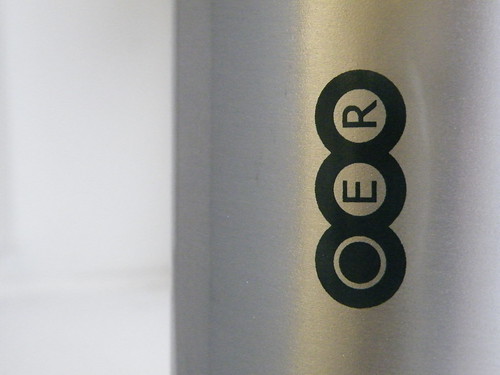On my open course H817Open I use a mixture of technology, and thought it might be useful to describe these here, and also to indicate what I'd like to do beyond this.
The technologies are:
OpenLearn - This is where the bulk of the content is hosted and also forums. It is provided by the OU for OU content only, so not an open content system. It made sense to use this, but some recent changes have made the page rendering slow, and the design is suitable for a one-off visit to find an OER in that it prompts you to find other resources, it uses up too much screen real estate on this for a MOOC.
WordPress - this is the blog aggregator, based on the DS106 model. Students blog on their own spaces, but they register their blog with us. We then syndicate all the feeds using the FeedWordPress plug-in. I wanted them to use any blog they liked, so I tried using a Google Form that has a Martin Hawksey script to autodiscover the feed. This hasn't really worked as feeds are hidden all over the place and I've ended up adding most in by hand. We ask students to tag posts with #h817open and only posts with this tag are accepted (there is a setting in FeedWordPress for this), so if they blog about going shopping, that doesn't get pulled in. This has worked quite well. For next year I think I would ask learners to restrict their platforms to blogger, wordpress or tumblr as we can then write a bit of code that will automatically discover feeds in the known locations for these platforms.
Mailchimp - I send a weekly email outlining what is coming up and addressing any issues. This has been surprisingly important, and probably the key component. Mailchimp allows you to send emails to upto 2000 subscribers for free. I get a csv file from the openlearn platform and upload this, then create the weekly email. A lot of the identity and tone of the course arises from this email so it's worth investing some time in getting it right (I don't know that I have).
GMail - I set up a generic email account for the course to handle queries
Cloudworks and badges - we experimented with badges and the Cloudworks system has a very neat tool for creating a badge. However it's a bit fiddly in that you have to create a cloudworks id and then a mozilla one.
Blackboard Collaborate - I deliberately haven't scheduled many synchronous events as I wanted a more open course in terms of timings, but I did get George Siemens to give a talk and we have a discussion and review session planned. The OU has signed a contract with Blackboard so we went with this for easiness, but I think I would explore Google Hangouts next year.
Twitter - I ask people to use the #h817open hashtag, but I have to say Twitter has proven to be less significant, or less active, than I expected. I would probably make a specific activity around this next year to encourage use early on.
Google Plus - I didn't create a specific Google Plus community, but learners created one immediately and it has proven to be lively, interesting and supportive. It has beaten twitter as the forum of choice.
Blogs - as I mentioned above, most student activity is undertaken on their own blogs. They can use any platform they like (although note my reservations about this for next year). I've been trying to promote a 'collaboration-lite' model whereby you can work largely independently, but through the aggregator (or Google Plus) you can connect and share as much as you like. I think this has worked for some learners but not others.
So that is my collection of tools - a mixture of in-house and out-there technologies. I met Philipp Schmidt last week and at the same time had a twitter conversation with Martin Hawksey which has set me thinking. What I would like is an open course DIY toolkit. You come along, select which functions you want and it recommends a bunch of open technologies (although not necessarily open source) with examples of where they've been used, and hey presto, you roll your own MOOC. I may work on this soon, but if anyone wants to have a crack, let me know.


